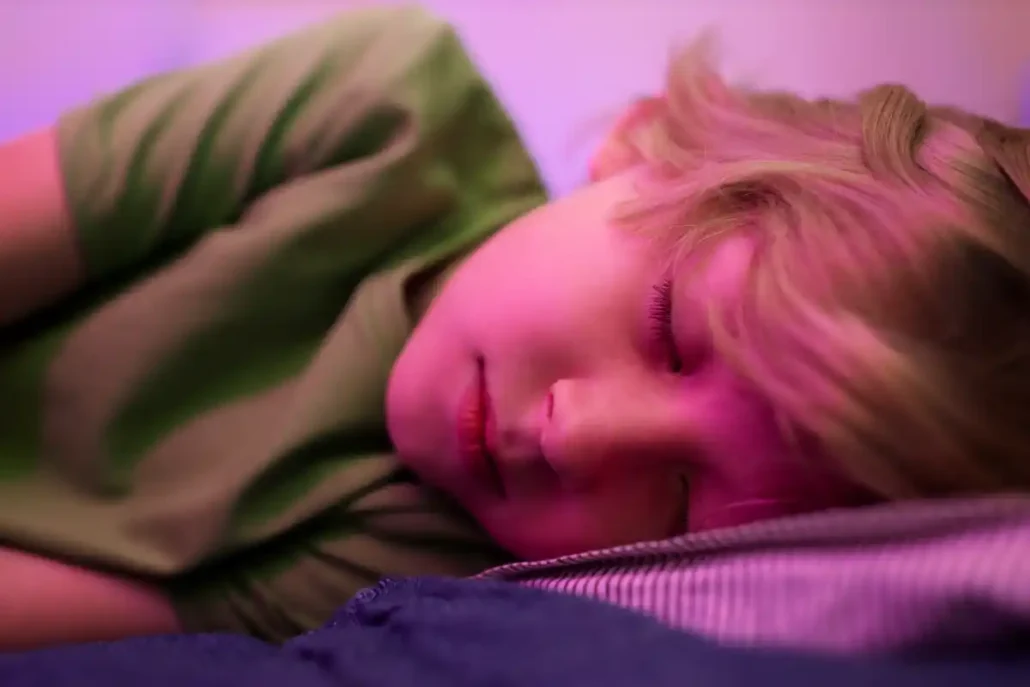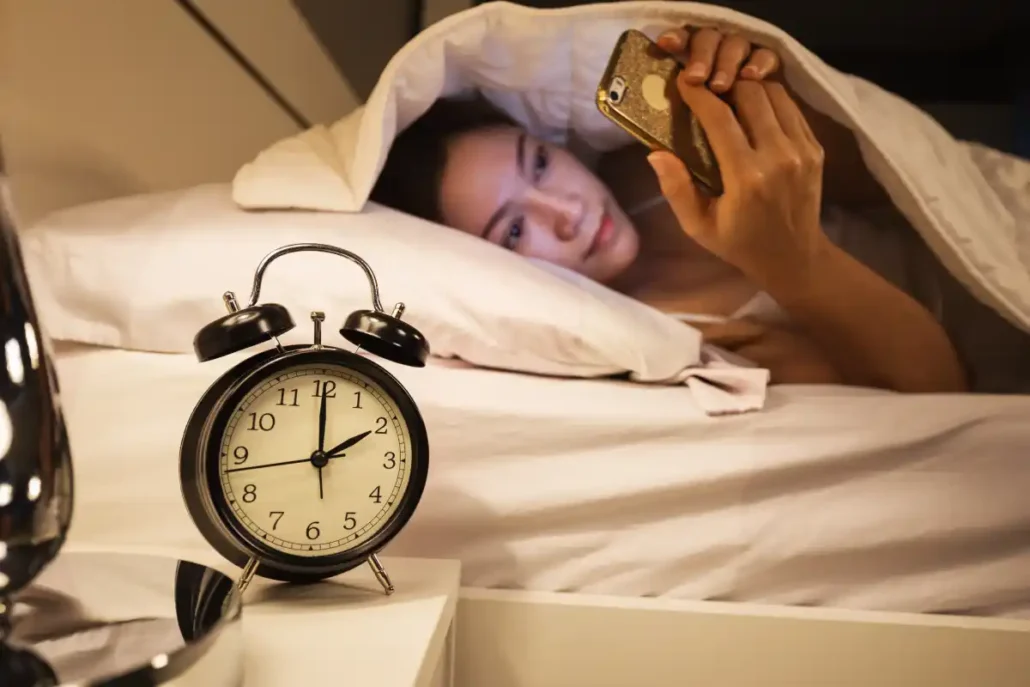
If you have any connection to a gamer or the gaming world, you’ve heard this saying plenty of times – or even seen it plastered to gaming cave walls or on a well-worn t-shirt. However, “Eat-Sleep-Game-Repeat” is more than just a catchy phrase loved by avid gamers and tournament winners in Korea and Australia.
Instead, this mantra captures the essence of gamers’ intensity and focus by listing the “only essential” things needed to level up and dominate in the gaming world. And the intensity is real – the video game sector is larger than the movie and music industries combined, and it’s only growing, with $260 billion in revenue projected by 2025.1
So, in today’s post, we’re exploring the sleep side of gaming culture. More specifically, why sleep is just as crucial for gamers as every other human – after all, as invincible as your avatar may be in play, your human body isn’t wired for sleeplessness. Quality sleep is critical to our daily mental and physical recovery, which can help gamers stay alert in the game – and throughout the day.
So what can gamers do to improve sleep quality? Today’s post has plenty of advice for players ready to make sleep as necessary as “game and repeat.”
How Much Sleep Do Pro Gamers Get?
Did you know there are over two billion gamers across the world? That’s approximately 26% of the world’s population! The numbers don’t lie – gaming is not just a pastime; it’s an established culture with an appeal many cannot resist, especially when pros can rake in well over six figures wielding a controller. However, before quitting your day job to game full-time, consider this: how much sleep do pro gamers get? According to this article – not enough to be considered anywhere near healthy.2
Unfortunately, gaming can quickly sabotage quality sleep efforts, especially with so many players competing across time zones. From psychological traps, like game FOMO, to physical disruptors, like screen lights, quality sleep often doesn’t get the priority it deserves.
However, you can level up your sleep game without sacrificing gaming quality by being mindful of a few simple things. These adjustments to your space and routine may seem small, but they can improve your sleep efforts and provide consistently better rest overall for improved mental and physical performance on screen and in life.
Resist the “One More Game” mentality.
Unsurprisingly – especially if you are a gamer – playing video games can activate the brain’s pleasure circuits. Researchers3 at Stanford University scanned brain waves in twenty-two male and female subjects while playing a video game. The results? Video game playing activated the dopamine pleasure circuit to some degree in all test subjects.
This study helps explain why “just one more game” keeps many playing well into the night rather than sleeping. That heightened need to level up before bed may be as much about competition as the pleasure of playing. However, mastering the ability to set boundaries with an AFK before bedtime also offers rewards. You’ll likely feel better rested in the morning after prioritizing sleeping over gaming, which means turning off all screens a couple of hours before bedtime.
Don’t game where you sleep.
Speaking of sleeping and gaming, where you play can also sabotage your sleep efforts. The two activities should be kept separate, i.e., don’t game in the bedroom. Our big, beautiful brains unconsciously create associations between actions and spaces, and the bedroom signals slumber, not action-packed gaming.
Having your Playstation, Xbox, or other gaming setups in a dedicated space outside the bedroom serves a dual purpose: it makes screen time easier to manage while creating separation between the activities of gaming and sleeping. Not to mention what the screen lights do to your sleep cycles, which we cover in our next pro-sleep tip for gamers.
Break out the blue blockers.
Modern device screens emit blue light, from TVs to phones. Blue light is part of the natural electromagnetic energy spectrum, and most of your exposure comes from the sun. However, today’s advanced technology and reliance on screens expose us to more blue light than ever before – and, of course, big, bright gaming monitors contribute.
Although science is trying to determine the long-term physical effects of blue light exposure, especially around eye health, there is concrete evidence4 that it affects our sleep cycles. This is because blue light decreases the body’s melatonin production, which regulates the sleep/wake cycle. Fortunately, there are ways to reduce this effect. First and foremost, turn off all screens an hour or two before bedtime. If that’s too challenging, at least invest in a pair of blue light-blocking glasses to decrease the effects of screen lights in the evening.
Rethink your “gaming” drink.
Many gamers reach for popular energy drinks that are high in sugar and caffeine to keep them alert while playing. However, these “energy” drinks often contain legal stimulants, like guarana, taurine, and L-carnitine – in addition to high amounts of caffeine. So, these energy bombs do more than work against sleep5; they can cause you to feel anxious, jittery, wired, and tired simultaneously.
That being said, if you can stop drinking high-octane energy drinks altogether, your body will thank you. However, if you need a little “juice” for gaming, we recommend stopping the consumption of these and other caffeine-containing drinks at least 4 hours before falling asleep.
Level up your sleep hygiene.
Sleep hygiene focuses on the habits affecting your ability to fall and stay asleep, and gaming too much before bed definitely falls into this category. However, it’s important to note that sleep hygiene involves more than just what you do before bed – instead, it’s about everything you do throughout the day that can affect your sleep. Energy drink with dinner? Poor sleep hygiene.
What we’ve discussed already, i.e., the gaming sleep traps, falls under the umbrella of sleep hygiene – poor sleep hygiene, that is. So, what *good* sleep hygiene tips do we have for gamers? Keep reading.
- Aim to get 7-8 hours of sleep nightly.
- Aim to go to bed and wake up at the same time every day.
- Establish a soothing pre-sleep routine (ex: reading, baths, or stretching).
- Avoid caffeine after lunch (especially energy drinks!).
- Lighten up on evening meals and avoid pre-bed snacks.
- Don’t drink too much right before bed – especially not alcohol.
- Turn off electronic devices a minimum of an hour before bed.
- Go to bed only when you are tired.
Another factor that supports good sleep hygiene is your sleep situation. Your bedroom is meant for sleep and sex only – not gaming. To create an environment conducive to sleep – ask yourself these questions:
- Is your bed big enough for comfortable sleep?
- Is your mattress comfortable and supportive?
- Is your pillow supportive?
- Is the bedroom temperature cool and comfortable at night?
- Is your room dark and free of artificial lights?
- Do you need a sound machine to drown out city noise while you sleep?
Basically, your slumber spot should be cool, dark, and relaxing – and make sure your bed is large enough to accommodate all occupants comfortably. Also, the best pillows for restful sleep align your spine by providing the appropriate support to your head and neck.
When “Eat, Sleep, Game, Repeat” is your ride or die, it’s easy to let the thrill of gaming outweigh everything else. But here’s the catch – ignoring your body’s need for quality rest can lead to irritability, reduced alertness, and slower reaction times. So, listen to your body and plan for sleep to avoid playing like an NPC.
Looking for more tips to level up your sleep game? Check us out at www.bettersleep.org for the latest research and insights into the power of sleep – game on, friends!
2 https://www.cdc.gov/sleep/about_sleep/how_much_sleep.html



